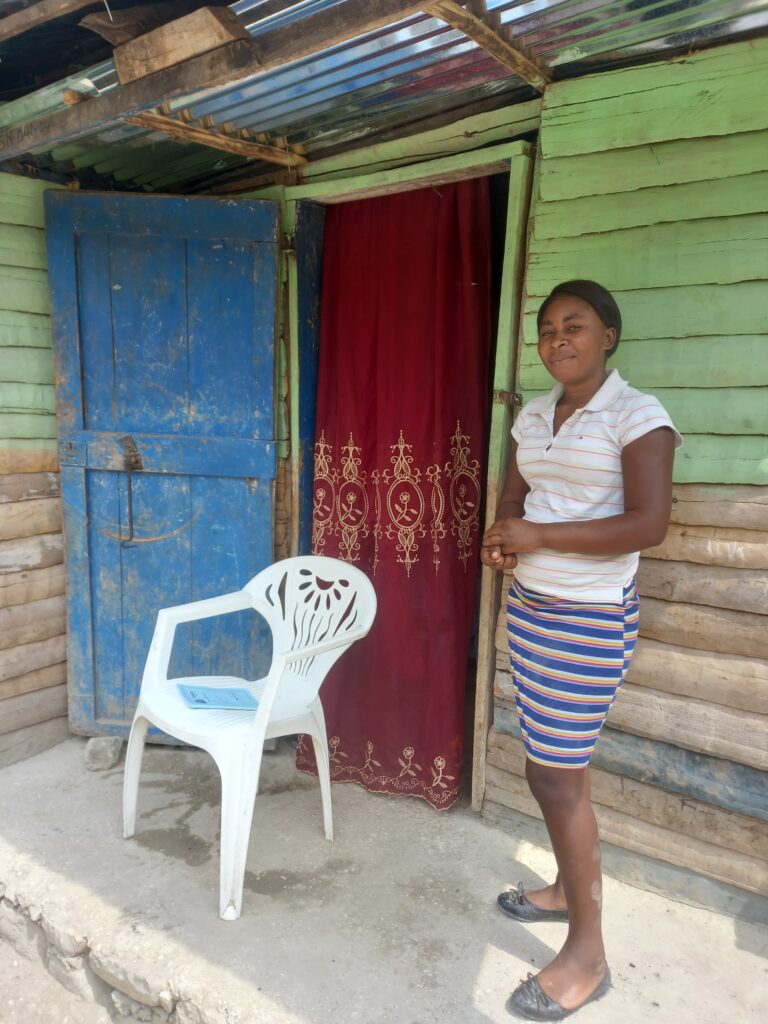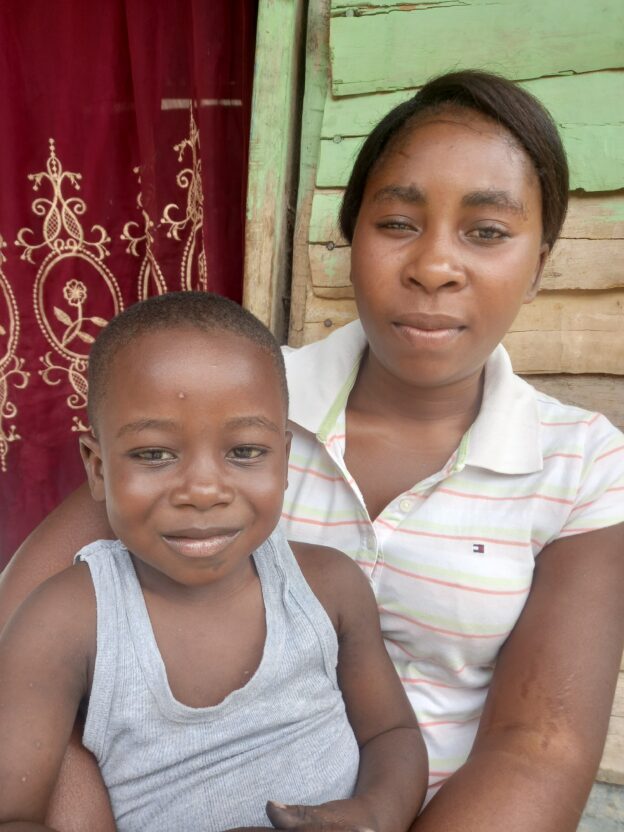Emmania lives in a small house in Woy with her partner, Jameson, and Jamesley, the couple’s four-year-old son. Their house is just a hundred yards or so off the main road that leads from downtown Savanèt to the Dominican border.
They haven’t lived there for long. When they first joined the CLM program, they were renting a room nearer to the downtown area. Their rent was 4,000 gourds per year. That’s about $25, and it may not sound like much, but the couple struggled to pay it. Emmania herself earned no income whatsoever. Jameson would borrow a motorcycle when he could and split the day’s receipts with the bike’s owner. He couldn’t make much, and he needed to manage both the rent and the 11,000 tuition at their boy’s school. “Sometimes we would just go hungry. We had to have a place to live and we had to send our boy to school.”
Their rent was about to come due. What’s worse, the house was falling apart. “Part of the wall had fallen. I used a sheet to cover the hole.” So, her case manager sprung into action.
Fonkoze’s team was not yet ready to transfer to members the materials they would need to repair their homes or build new ones. That takes some time because each member’s needs are different. But his 50 families had already received their materials for latrine construction. Those materials included a few sheets of roofing, and the case manager thought that Emmania’s potential homelessness was more important than the roofs of new latrines. So, he asked a few of the CLM members who would be Emmania’s new neighbors — she had access to land from her grandfather — to lend her their roofing. They agreed and Emmania’s house went up quickly. When the home repair materials were distributed, Emmania paid back the loans.

Emmania asked the program to give her goats and a pig, and she first received two goats. One died shortly after the team delivered it, so it will eventually have to be replaced, and the other had a miscarriage but is now pregnant again.
When it came time to buy the pig, Emmania had a change of heart. She saw that a lot of pigs in the area were getting sick and dying, so she asked her case manager to give her a small commerce instead.
They bought plastic sandals for 3,500 gourds, but it wasn’t working out. “People ask to buy on credit, and then they don’t pay.” So as she sold off her first supply of sandals, she put the money away and bought some cement to cover her new home’s dirt floor.
She also saved just enough of the sandal money to try another, smaller business. She put a basket with school supplies on the side of the road in front of her house. But the pencils, pens, and notebooks haven’t been selling well. “I just don’t have any luck with commerce,” she says.
She also uses proceeds from selling out her sandals to continue contributions to her savings club. She is part of a sòl, a common way of saving in Haiti in which members of a group make weekly contributions and one gets the entire pot every week. Her turn comes up last, and she has already decided to buy another goat with her money. For the moment, she doesn’t really know what she will use the goats for, but she likes having them in case she needs money to cover a sudden expense.
